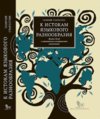
-
 Anglický jazyk
Anglický jazyk
Brazilian skeptics
Autor: Source: Wikipedia
Source: Wikipedia. Pages: 25. Chapters: Brazilian agnostics, Brazilian atheists, Gilberto Gil, Paulo Francis, Caetano Veloso, Fritz Müller, Jorge Amado, Raul Seixas, Nando Reis, Erico Verissimo, Renato M. E. Sabbatini, Sebastião Salgado, Lima Duarte, Tony... Viac o knihe
Na objednávku, dodanie 2-4 týždne
13.68 €
bežná cena: 15.20 €
O knihe
Source: Wikipedia. Pages: 25. Chapters: Brazilian agnostics, Brazilian atheists, Gilberto Gil, Paulo Francis, Caetano Veloso, Fritz Müller, Jorge Amado, Raul Seixas, Nando Reis, Erico Verissimo, Renato M. E. Sabbatini, Sebastião Salgado, Lima Duarte, Tony Bellotto, Drauzio Varella, Marcelo Gleiser, Ferreira Gullar, Luís Fernando Veríssimo, Arkan Simaan, Dalton Trevisan, Paulo Autran, Graciliano Ramos, Edgard Leuenroth, Dias Gomes, Antônio Fagundes, Malu Mader, Andréa Beltrão. Excerpt: Gilberto Passos Gil Moreira (born June 26, 1942), better known as Gilberto Gil (Portuguese pronunciation: ) or (Portuguese pronunciation: ), is a Brazilian singer, guitarist, and songwriter, known for both his musical innovation and political commitment. From 2003 to 2008, he served as Brazil's Minister of Culture in the administration of President Luiz Inácio Lula da Silva. Gil started to play music as a child and was still a teenager when he joined his first band. He began his career as a bossa nova musician, and then grew to write songs that reflected a focus on political awareness and social activism. He was a key figure in the Música Popular Brasileira and tropicália movements of the 1960s, alongside artists such as longtime collaborator Caetano Veloso. The Brazilian military regime that took power in 1964 saw both Gil and Veloso as a threat, and the two were held for nine months in 1969 before they were told to leave the country. Gil moved to London, but returned to state of Bahia in 1972 and continued his musical career, as well as working as a politician and environmental advocate. Gil's musical style incorporates an eclectic range of influences, including Rock music, Brazilian genres including samba, African music, and reggae. Gil was born in Salvador, an industrial city in the northeast of Brazil, though he spent much of his childhood in nearby Ituaçu. Ituaçu was a small town of fewer than a thousand, located in the sertão, or countryside, of Bahia. His father, José Gil Moreira, was a doctor; his mother, Claudina Passos Gil Moreira, an elementary school teacher. As a young boy, he attended a Marist Brothers school. Gil remained in Ituaçu until he was nine years old, returning to Salvador for secondary school. Gil's interest in music was precocious: "When I was only two or two and a half," he recalled, "I told my mother I was going to become a musician or a president of my country." He grew up listening to the forró music of his native northeast, and took a
- Vydavateľstvo: Books LLC, Reference Series
- Rok vydania: 2020
- Formát: Paperback
- Rozmer: 246 x 189 mm
- Jazyk: Anglický jazyk
- ISBN: 9781156039397




 Nemecký jazyk
Nemecký jazyk 
 Ruský jazyk
Ruský jazyk 




